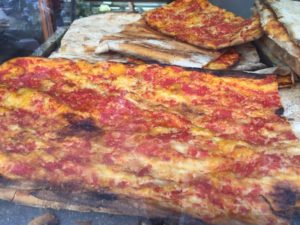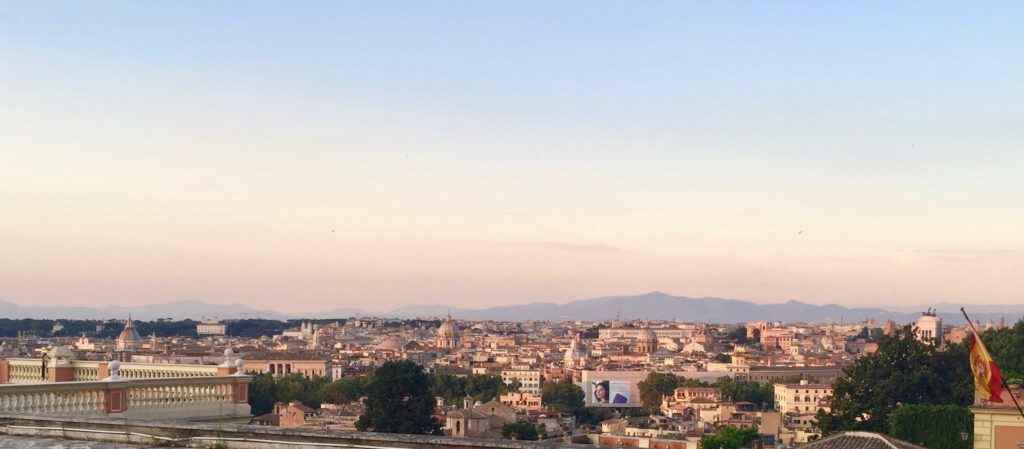July 9, 2018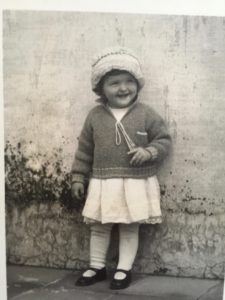

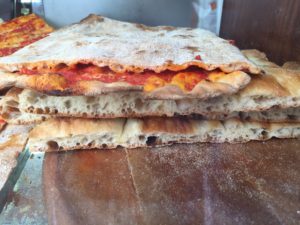
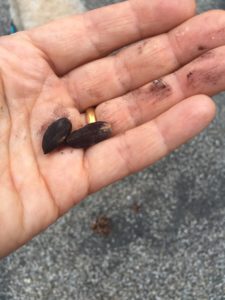

Rome and Memory

Only children, in my experience, maintain an ongoing conversation with themselves much of the time, a habit we establish in early childhood. Adults are not always interested in what we are thinking or saying but someone just our own age often is. At least so it was for me, growing up an only child, and one who since I first remember, has always talked to herself.
It may also because it became clear to me in perhaps my only act of childhood prescience that adults would in time be gone and it would be only me, so much younger than they, as the repository of my memories.
So early on, when much less than 10, and something special happened, and I wanted not to let the memory ever slip away, I would consciously stop, tell myself to mark it in my mind, and then using the idea of folding a tablecloth, fold the memory into eighths into a small gold chest.
Over the years the memories, selected, marked, folded and put away, have piled up, much as they would in a linen chest. Some, like all textiles, dissolved into dust. But many I have over the years gone back to, often again and again, taking them out, feeling them in the hands of my mind, savoring. Then as I have since my childhood, I have folded them up and put back until the next time.
Unlike a real chest, however, my memory chest, very small in dimension, has a limitless capacity.
Today is my mother’s 97th birthday, and it is the first time since 1921 that she is not here to celebrate it.

It is the work of a moment however for me to open my chest and pull out several memories that I hold dear, all relating to how it was that she made me fall in love with Rome.
That she did so in double quick time, never surprised her. But it did me, a pouting 12 year old, plucked from suburban Virginia in the mid 1970s, severed from her neighborhood pool, an affectionate alcoholic father, shopping malls and comforting bland familiarity.
The first day back in Rome, the city of my birth but long unfamiliar to me from years away, I wept loudly, and confided in my diary that my mother was savage, and how could she take me away from what I held most dear.
Exultant to be back in Rome, her birthplace too, and irritatingly uncooperative in not taking my fretting seriously, Mummy took a course of action.
“We are walking into Trastevere”, she said. In my Danskin shorts and T shirt and my Keds, I shuffled behind her grumpily, in a numb jet lag made more sodden still by self pity.
Mummy always knew how to make things right, and if I had chosen to leave the pleasure of my gloom, I would have known that ahead was change.
The memories of that day would be set because it was not my intention to ever like Rome.
Not knowing yet that it would become my square, where I played and loitered, licked ice cream cones, later had my first kiss, drank espresso and stubby glasses of white wine, we traversed Piazza San Cosimato. There, hanging outside the dry cleaner in a cage a large parrot I would later learn to like wished me a cheery “va fanculo”.
We trod over vegetable trimmings and onion paper wrappings cast to the ground and that previously swaddled blood oranges. We saw the huge bristle brooms at work in the hands of green clad netturbini sweepers who chatted companionably as they worked.
We followed the fragrance. My mother followed the fragrance. I followed my mother. She knew where she was going, because as a child, she had gone there too.
Antica Norcineria del 1920 is the store we who have lived in Rome a long time always fear will close, a family run, old fashioned food shop with huge windows, solicitous all-male vendors in white jackets, and a limited selection of the same delicacies they have sold forever. And a smell of sheep cheeses, of well matured prosciutto and…of tomato skin, of warm olive oil, of sweet wheat.
Of pizza rossa.
We were soon out on the street, each with a thin, glistening jewel of pizza rossa in our hands, half wrapped in waxy brown paper. Not since I was five or less had I seen pizza rossa. My mother was well into her slice, mopping the corners of her mouth with a Kleenex. “What do you think ?”

What did I think ? Soon tomato sauce was all over my Danskin shirt. I could not tuck into it quickly enough, so remarkably intense and delicious was that first pizza rossa.
My mother waited till I had finished. She did not mop my mouth with her Kleenex, or try to remove the tomatoes from my shirt. But she took my oily hand in her cool one and guided me back through the piazza, where once again the parrot raised its head from under its wing and commented “va fanculo”.
Rome’s London plane trees, then as now, seemed to me on that first afternoon like great noble beings, with their peeling white bark, their trunks as broad as a room and most of all in the grandeur of their arched branches. We walked under them up the hill. Glinting far above our heads, the Roman evening light slitted through their vast canopy.
It was September and the heats of the long summer had half tinted the leaves yellow, but the boughs that reached across Via Dandolo came together in an arch of cool, of permanence, of well being.
The basement apartment we had rented for six months lay just ahead, with unopened suitcases, an unfamiliar bathroom, and later, we discovered, a large family of sociable rats. But my mother was not intentioned to take us home. We turned alongside the flank of the American Academy, and there she pointed, with satisfaction. “The pinoli ! Can you smell the pinoli ? Can you see the pinoli ?”
Respighi’s Pines of Rome was one of the pieces of music I grew up on, my mother putting the LP on the old record player, conjuring I suspect memories of her own childhood in Villa Borghese, under the great umbrella pines there.
Since that evening I have never been able, when the season is right, and I am under umbrella pines, not to peer carefully onto the sidewalk or the ground looking for the ebony oval of a ripe pine nut. And stirring a memory that is precious in my chest.
When you touch the pine nut’s shell, its tar-like black comes straight onto your hands, and the pine nut has its own victory over you, who has picked it up. But if the air is warm, as it was that evening, and the sun was on the nuts until just a while ago, the smell of a pine nut in your hand is pure joy : pungent, dry, resinous.

My mother hunted for a rock, and soon found one. She took the nuts from my hand, and showed me how to hold the rock just so, to make a clean break in the shell (“a firm hit, just once, you want to split it open”) revealing the creamy gem within.
I draw strength from the feeling of that day, and from the memory of what it was to be there on that evening.
Mummy and I stood there some long time, along the walls, taking turns with the rock, cracking pine nuts for ourselves and for one another, until the Roman light turned from gold to shadowy, and the pine trees, vast and reassuring, turned dark against the sky.
At long last I said : “shall we go home ?”
And home we went, and so it has been ever since.
Marjorie Shaw 2018

Meet Marjorie
Insider’s Italy is an experienced family business that draws on my family’s four generations of life in Italy. I personally plan your travels. It is my great joy to share with you my family’s hundred-year-plus archive of Italian delights, discoveries and special friends.

